第32章 WILL TELL(1)
David Greene was an employee of the Burdett Automatic Punch Company.The manufacturing plant of the company was at Bridgeport, but in the New York offices there were working samples of all the punches, from the little nickel-plated hand punch with which conductors squeezed holes in railroad tickets, to the big punch that could bite into an iron plate as easily as into a piece of pie.David's duty was to explain these different punches, and accordingly when Burdett Senior or one of the sons turned a customer over to David he spoke of him as a salesman.
But David called himself a "demonstrator." For a short time he even succeeded in persuading the other salesmen to speak of themselves as demonstrators, but the shipping clerks and bookkeepers laughed them out of it.They could not laugh David out of it.This was so, partly because he had no sense of humor, and partly because he had a great-great-grandfather.Among the salesmen on lower Broadway, to possess a great-great-grandfather is unusual, even a great-grandfather is a rarity, and either is considered superfluous.But to David the possession of a great-great-grandfather was a precious and open delight.He had possessed him only for a short time.Undoubtedly he always had existed, but it was not until David's sister Anne married a doctor in Bordentown, New Jersey, and became socially ambitious, that David emerged as a Son of Washington.
It was sister Anne, anxious to "get in" as a "Daughter" and wear a distaff pin in her shirtwaist, who discovered the revolutionary ancestor.She unearthed him, or rather ran him to earth, in the graveyard of the Presbyterian church at Bordentown.He was no less a person than General Hiram Greene, and he had fought with Washington at Trenton and at Princeton.Of this there was no doubt.That, later, on moving to New York, his descendants became peace-loving salesmen did not affect his record.To enter a society founded on heredity, the important thing is first to catch your ancestor, and having made sure of him, David entered the Society of the Sons of Washington with flying colors.He was not unlike the man who had been speaking prose for forty years without knowing it.He was not unlike the other man who woke to find himself famous.He had gone to bed a timid, near-sighted, underpaid salesman without a relative in the world, except a married sister in Bordentown, and he awoke to find he was a direct descendant of "Neck or Nothing" Greene, a revolutionary hero, a friend of Washington, a man whose portrait hung in the State House at Trenton.David's life had lacked color.The day he carried his certificate of membership to the big jewelry store uptown and purchased two rosettes, one for each of his two coats, was the proudest of his life.
The other men in the Broadway office took a different view.As Wyckoff, one of Burdett's flying squadron of travelling salesmen, said, "All grandfathers look alike to me, whether they're great, or great-great-great.Each one is as dead as the other.I'd rather have a live cousin who could loan me a five, or slip me a drink.What did your great-great dad ever do for you?""Well, for one thing," said David stiffly, "he fought in the War of the Revolution.He saved us from the shackles of monarchical England; he made it possible for me and you to enjoy the liberties of a free republic.""Don't try to tell me your grandfather did all that," protested Wyckoff, "because I know better.There were a lot of others helped.I read about it in a book.""I am not grudging glory to others," returned David; "I am only saying I am proud that I am a descendant of a revolutionist."Wyckoff dived into his inner pocket and produced a leather photograph frame that folded like a concertina.
"I don't want to be a descendant," he said; "I'd rather be an ancestor.Look at those." Proudly he exhibited photographs of Mrs.Wyckoff with the baby and of three other little Wyckoffs.
David looked with envy at the children.
"When I'm married," he stammered, and at the words he blushed, "Ihope to be an ancestor."
"If you're thinking of getting married," said Wyckoff, "you'd better hope for a raise in salary."The other clerks were as unsympathetic as Wyckoff.At first when David showed them his parchment certificate, and his silver gilt insignia with on one side a portrait of Washington, and on the other a Continental soldier, they admitted it was dead swell.
They even envied him, not the grandfather, but the fact that owing to that distinguished relative David was constantly receiving beautifully engraved invitations to attend the monthly meetings of the society; to subscribe to a fund to erect monuments on battle-fields to mark neglected graves; to join in joyous excursions to the tomb of Washington or of John Paul Jones; to inspect West Point, Annapolis, and Bunker Hill; to be among those present at the annual "banquet" at Delmonico's.In order that when he opened these letters he might have an audience, he had given the society his office address.
In these communications he was always addressed as "Dear Compatriot," and never did the words fail to give him a thrill.
They seemed to lift him out of Burdett's salesrooms and Broadway, and place him next to things uncommercial, untainted, high, and noble.He did not quite know what an aristocrat was, but be believed being a compatriot made him an aristocrat.When customers were rude, when Mr.John or Mr.Robert was overbearing, this idea enabled David to rise above their ill-temper, and he would smile and say to himself: "If they knew the meaning of the blue rosette in my button-hole, how differently they would treat me! How easily with a word could I crush them!"But few of the customers recognized the significance of the button.They thought it meant that David belonged to the Y.M.C.
A.or was a teetotaler.David, with his gentle manners and pale, ascetic face, was liable to give that impression.